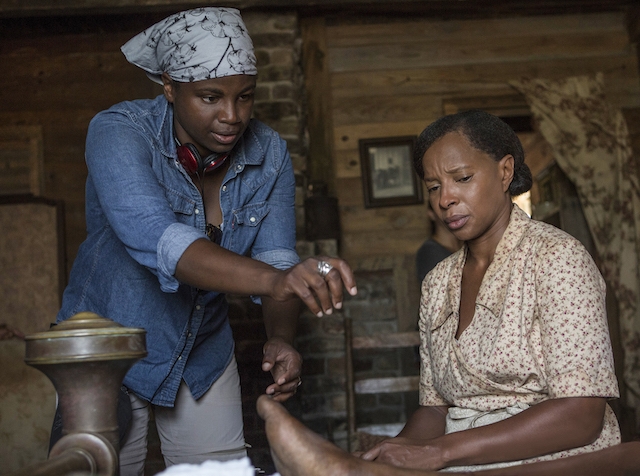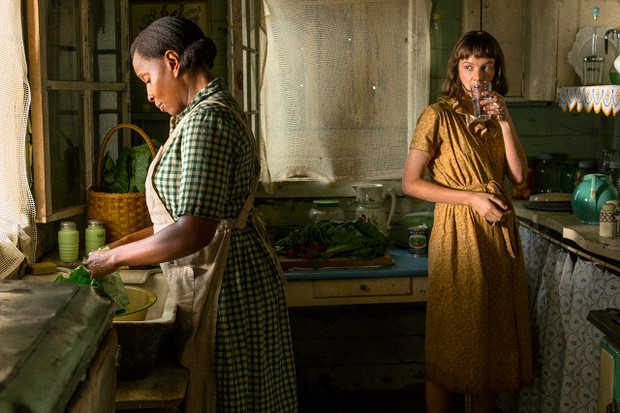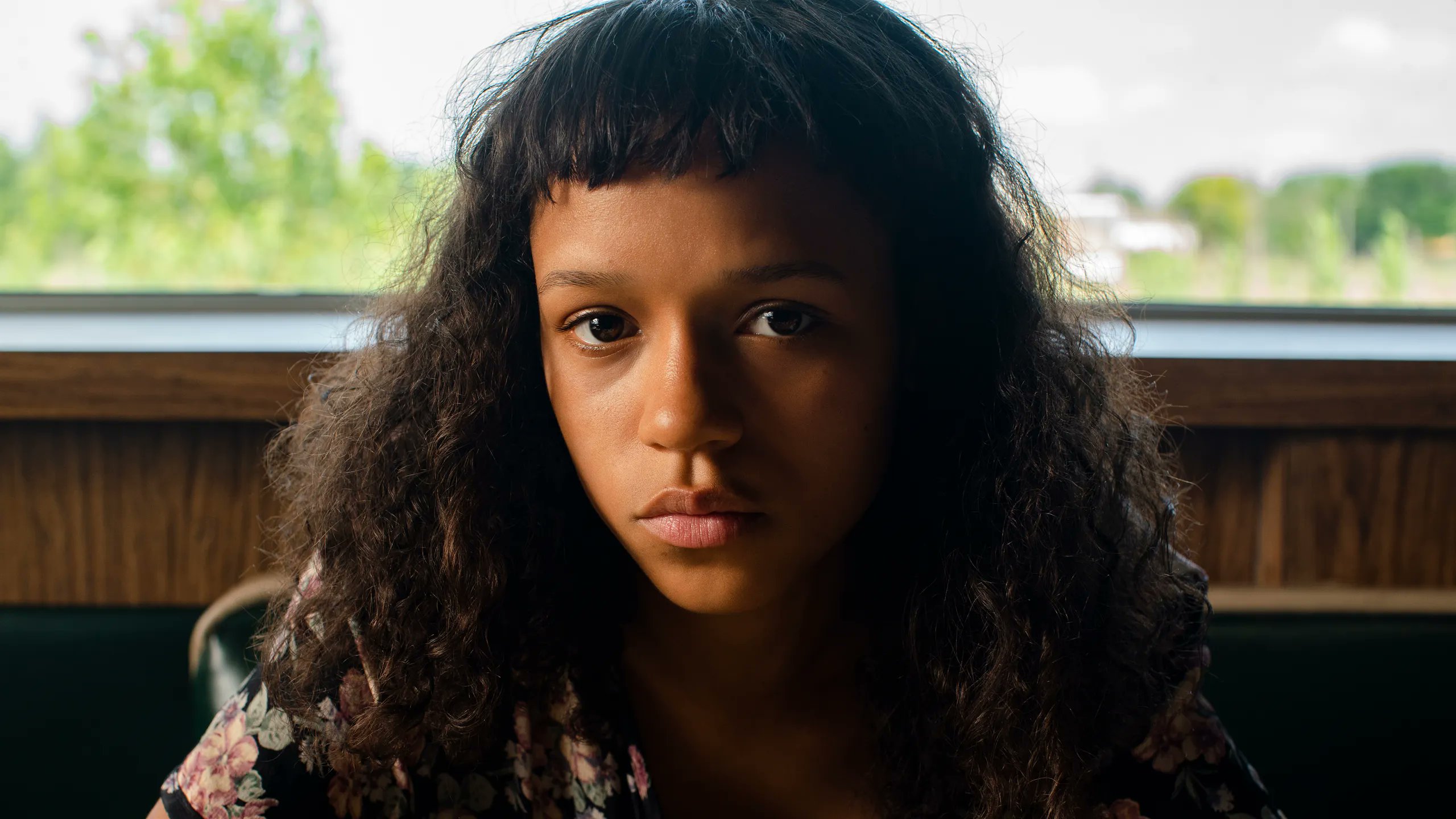
A queer black woman director might walk away with an Oscar this February
Siobhan Lawless
03 Dec 2017
A couple years ago the thought of a black, queer, young, woman director walking away with an Oscar would have been unfathomable.
This is what made this year’s Best Picture winner Moonlight so historic: the first LGBT+ film and making Barry Jenkins the second black director (after Steve McQueen) to win Hollywood’s most coveted award. Now, there’s fresh hope that Nashville-born filmmaker Dee Rees (Pariah [2011], Bessie [2016]) will make history by walking away with the golden statuette, with her latest outstanding achievement Mudbound – which left me stunned, speechless and shook.
Based on Hillary Jordan’s award-winning 2008 novel, Mudbound tells the tale of two parallel families – one white (The McAllans) and one black (The Jacksons) – living on a farm in the rural Mississippi Delta, at the end of World War Two. Set in Jim Crow America, Rees’ film explores racial attitudes in the South, the failure of the American Dream, challenges of fighting in the war and reintegrating back into a society unfit for heroes.
Henry (Jason Clarke) and his wife Laura McAllen (Carey Mulligan) leave their civilised life in Memphis behind, so Henry can fulfil his dream of running a farm, in Mississippi. But Laura struggles to settle into these foreign surroundings with their two daughters, under the presence of her cantankerous and racist father-in-law, Pappy (Jonathon Banks). Hap (Rob Morgan) and Florence Jackson (Mary J Blige) are the two heads of the Jackson the family; the sharecroppers who work on Henry’s farm. Despite having little, the Jackson’s appreciate everything they have and cherish the concept of family deeply.
“Mudbound focuses on capturing the nuances of racial aggression, beset by moments of everyday tenderness”
When both Henry’s younger brother Jamie McAllen (Garrett Hedlund) and the Jackson’s eldest son Ronsel (Jason Mitchell) are enlisted to fight in WW2, the film shows how this puts a strain on both family structures at home. Once the war finishes, an unlikely friendship is struck between Jamie and Ronsel. Unfortunately, this more promising storyline eventually gives way to immense tragedy. Mudbound is a devastating, compelling and stunning Southern epic – where beautiful bucolic landscapes serve as a stark contrast for ugly racism.
While 12 Years A Slave was a full guns-blazing, fierce and ferocious portrayal of racism, Mudbound focuses more on capturing the nuances of racial aggression, beset by moments of everyday tenderness.
From small acts of kindness between Florence and Laura, to Jamie and Ronsel goofing around – these relationships show compassion transcending the time’s racial and social boundaries. To more disheartening moments – when Ronsel returns from the war; after having served his country; been heralded as hero; fought on the frontline; having had an interracial relationship; he is forced to become a second-class citizen again in the South and sit at the back of the segregated bus, with all his badges and awards still on show. Moments like this and when Ronsel is humiliated into using the back door to leave the shop, after proudly having been able to walk out the front door when he was abroad, show the everyday hardships black veteran soldiers faced. It’s so powerful the way Rees gives this a platform because it’s an important area which history shies away from.
Despite Mudbound’s mid-1940s setting, there’s something timeless about it. Some people might question why these stories need to be told almost half a century since the murder of Martin Luther King, when we’re supposedly living in a “post-racial” society. One such person must remember just this summer, Charlottesville made worldwide news for a violent white supremacist rally were the Klu Klux Klan and neo-Nazis came out in numbers, killing one counter protester and injuring 19 others. While on the 10 July 2016 when the film’s most harrowing scene with the Klu Klux Klan was filmed, a real lynching by the KKK was supposed to have happened in Atlanta. Just these two instances alone indicate we are not living in the progressive society we think we are and carry the cracks in our history with us presently.
“As a country, we have to keep looking. Because we keep looking away, and that’s how we end up where we are now”
Mudbound’s ending explores the relationship between forgetting and forgiving – weighing up how much our ancestors have sacrificed one to achieve the other, in their journeys of healing. In an interview with COMPLEX, Dee Rees elucidated why it was so important to place her audience inside her characters’ suffering: “For people to say: ‘It’s hard to watch’ – these are the same people who watch A Clockwork Orange and Reservoir Dogs. And if you can watch that, you can watch this. As a country, we have to keep looking. Because we keep looking away, and that’s how we end up where we are now.”
The film’s multiple narratives, switching between the character’s consciousnesses builds up an image of overlapping and collective pain. Rees revealed her reasoning behind this “I wanted to make this balance and give it a story of two families. It’s a dark symbiotic relationship showing how they’re both connected to each other because of trauma, because of disinheritance, feelings of economic disparity, motherhood – and also, they’re rooted to the land. They’re all stuck in the muck.” Because that’s exactly what Mudbound is about – how people can find themselves stuck in their own bigoted ways, which prevents them from moving forward; how when people push for changes, they’re met with the same agonising resistance as dragging their feet through sludge.
But that’s what sets Mudbound aside from its title: it’s bravely pushing boundaries. Despite being a hit at Sundance Festival, Rees struggled to get Mudbound picked up by any of the distribution houses. In Women’s Hour, Carey Mulligan and Mary J Blige discussed how this was due to their nervousness over supporting a woman filmmaker. Thankfully, Netflix were unafraid of any of these “risks” and invested a game-changing $12.5 million in Rees’ production.
For this reason, Mudbound could make history in yet another way. By entering the Oscar race it means it could become the first film which sees Netflix (previously shunned at award ceremonies) win itself an Oscar. As an entertainment company who seems to keep going from strength to strength and one in greater favour of diversity, with shows such as Dear White People and The Get Down – it’s fully got my backing too. But more than anything, this is about talented black, woman filmmakers in Hollywood, for once and all, finally getting the recognition they deserve.










